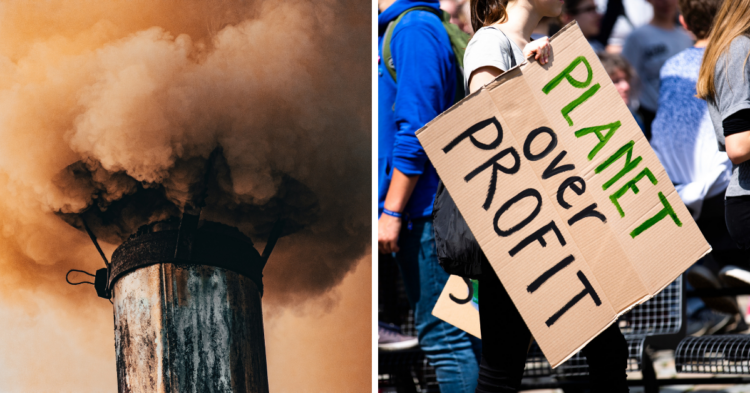Climate change has been a hot topic in recent years, and for good reason, too.
The fight against it means rethinking the ways in which a lot of companies operate. This includes “Big Oil,” which is one of the largest carbon contributing industries around.
In recent weeks, there has been some good news surrounding how certain Big Oil companies — namely Exxon and Shell — will operate in the future.
Climate activists won big against Exxon.

On May 26th, 2021, ExxonMobil’s board of directors gained two new members, Forbes reports .
What makes this such a momentous occasion is the fact that both of these board members were selected from a pool of nominees brought forward by Engine No. 1.
But what is Engine No. 1?
Engine No. 1 is a small hedge fund made up of environmental activists. They have a minuscule share in ExxonMobil (just 0.2% !), but used that to fight a lawsuit against the oil giant (and win!)
This is what allowed them to elect two of their own representatives to the board in order to oversee climate action incentives.
They did this by acting in the shareholders’ best interest.

Engine No. 1 claimed that Exxon’s climate inaction was negatively effecting shareholder value. Other shareholders agreed , which is what propelled their victory. It’s definitely showing a shift in shareholder and public interest.
And the victory continues.
The hedge fund got two of their four nominees elected to the board, but Forbes reports that the other two may very well be joining them in the near future.
This is fantastic news for Engine No. 1, its fellow shareholders, and environmentalists all around!
Climate change activists can celebrate a *second* big win that happened on the same day.

In addition to this huge win against Exxon, Royal Dutch Shell was at the center of a lawsuit that also saw its conclusion on May 26th. The oil company went up against seven climate activist groups and lost.
This lawsuit will put more pressure on Shell to meet emissions goals in the coming years.

Thanks to the climate activists’ victory against Shell, the company will have to reduce its carbon emissions by 45% in 2030 .
This is a huge jump from the 20% reduction the company was already promising within the same timeframe.
This includes Scope 3 emissions.

According to Forbes , Scope 3 emissions are “the emissions released by those who use its products,” including gas stations and utility companies.
And that’s a pretty big deal.
In the past, Big Oil companies could pass the responsibility of Scope 3 emissions off to these services. These two lawsuits represent a shift in the companies’ responsibility. They must now take all of their emissions into account, rather than just the ones they directly produce.
These lawsuits also represent a shift in climate consciousness.

The Exxon lawsuit was won thanks to shareholder support. And both lawsuits benefitted from courts willing to hold the companies more accountable for their carbon emissions.
This shows that there’s now more value (monetary and moral) in being environmentally conscious.
Shareholders are really seeing this, and this is reflected through these companies’ shares seeing a slight increase in value the day after the rulings.
This all has some pretty interesting implications for the future.

With court rulings like these, there is more pressure than ever for Big Oil to commit to drastic changes in their emissions. This could signal even more wins in the future.
h/t: Forbes .

















































